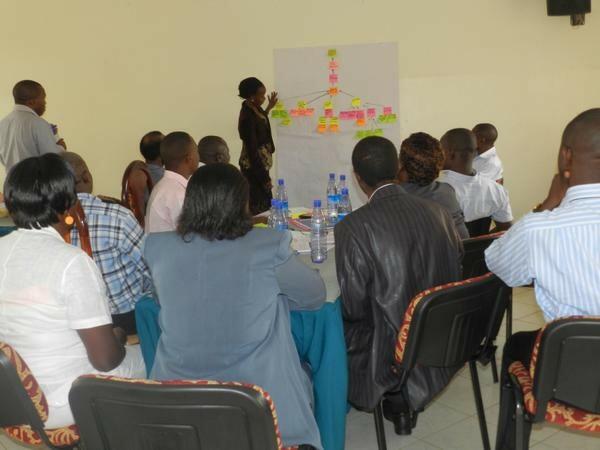
Health Systems Global hosted a Twitter chat on people centred research methods this week. LSTM colleagues Dr. Joanna Raven and Dr. Miriam Taegtmeyer were both panellists, sharing experiences on methods deployed and processes in PERFORM and REACHOUT. LSTM Senior Lecturer, and PERFORM lead, Tim Martineau participated from Uganda where he is currently part of a national dissemination meeting sharing products and processes from action research with health workers at the district level. Dr. Sarah Ssali from the Department of Women and Gender, at Makerere University, Uganda, and partner on the LSTM led ReBUILD programme also participated as a panellist.
Key questions posed to the panellists by Health Systems Global included: What ‘people-centred’ approach have you been using in your health systems research? What issues are you exploring? Where? Why do you think it is a useful method? Who does it engage? Did you face any challenges or un-anticipated consequences? How can we find out more about your research?
Key learning from the twitter chat about people centred approaches included the importance of partnerships with policy makers, health workers (including close to community providers, such as CHWs) and communities in order to develop trusting relationships to underpin the co-production of knowledge. Common methods and approaches to support partnership and people centred approaches included action research, quality improvement cycles and participatory approaches. Common to these is a systematic approach to participatory approaches to data collection, problem identification, a team approach to analysis and developing locally developed solutions that are relevant in context and owned by key players to support sustainability.
There were lots of exciting synergies and both panellists and participants welcomed the opportunity to share challenges and opportunities of using people centred approaches in different contexts.
You can read the whole Twitter chat through #HSR2015